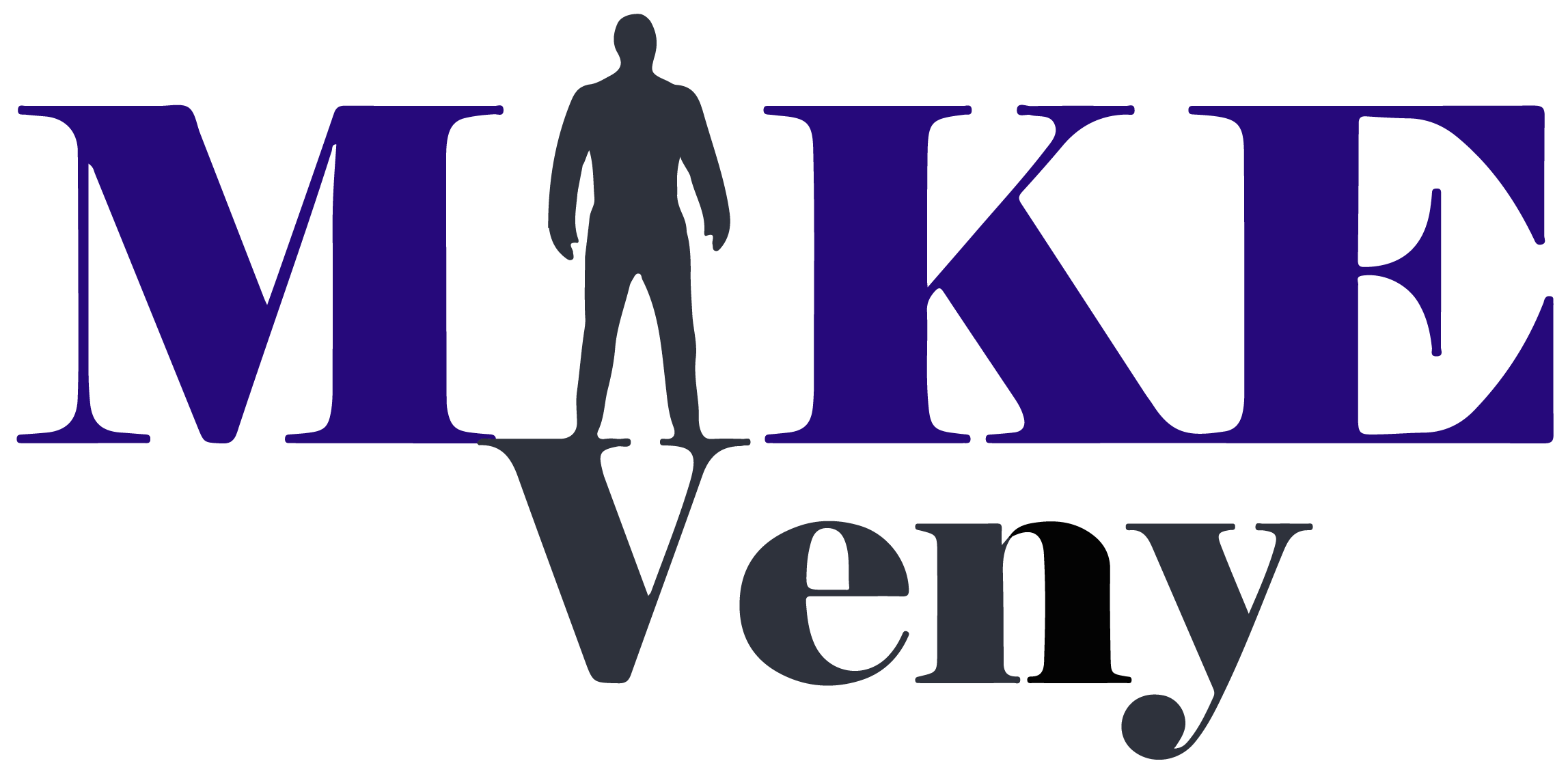
Image Source: AI Generated
In today’s fast-paced professional world, we’re always on the lookout for ways to stay ahead of the curve. That’s where accredited training providers come into play. These specialized organizations offer a unique blend of quality education and industry recognition that can give our careers a serious boost. We’ve seen firsthand how the right training can open doors and create new opportunities in our fields.
What sets accredited training apart from other educational options? We’ll dive into the nuts and bolts of training accreditation and explore how it differs from non-accredited courses. We’ll also look at the role of accrediting bodies like ANSI and IACET in ensuring top-notch instruction. By the end of this article, you’ll have a clear picture of how accredited training providers can supercharge your professional growth and why they’re worth considering for your next career move.
In the spirit of transparency, please know that IACET accredits Mike Veny, Inc., and I am the co-host, along with Randy Bowman, of IACETS podcast CET-Talks.
The Importance of Professional Development
We live in a world where change is constant, and staying relevant in our careers is crucial. Professional development plays a vital role in our growth and success. Let’s explore why it’s so important and how it can benefit us in various aspects of our professional lives.
Staying current in your field
In today’s fast-paced professional world, we’re always on the lookout for ways to stay ahead of the curve. The World Economic Forum warns that 44% of workers’ core skills are expected to change in the next five years due to technological advancements like machine learning [1]. This means we need to be proactive in updating our knowledge and skills to remain competitive in our respective fields.
To futureproof our careers, we should focus on developing skills such as analytical thinking, creative thinking, resilience, flexibility, and technological literacy. These skills not only help us adapt to changes in the market but also make us more valuable assets to our organizations. By participating in training sessions, workshops, and other learning opportunities, we can stay up-to-date with the latest trends and developments in our industries.
Improving job performance
Professional development has a direct impact on our job performance. As we gain new skills and expand our knowledge, we become more efficient and effective in our roles. This increased competence leads to improved productivity and better outcomes for our organizations.
Research has shown that investing in professional development can yield significant returns. For instance, a study by the MIT Sloan School of Management found that a company’s one-year training program in soft skills resulted in a 250% ROI within eight months of completion [2]. This demonstrates the tangible benefits of continuous learning and skill development.
Career growth
One of the most compelling reasons to prioritize professional development is its impact on our career growth. By actively engaging in learning opportunities, we position ourselves for advancement and new challenges. Accredited training providers offer courses and programs that can help us acquire the skills and knowledge needed to take on leadership roles or explore new career paths.
Professional development also boosts our confidence and credibility. As we expand our expertise, we become more self-assured in our abilities and are more likely to take on challenging projects or lead teams. This increased confidence can open doors to new opportunities and help us stand out in a competitive job market.
Moreover, continuous learning demonstrates our commitment to growth and adaptability, traits highly valued by employers. By staying current with industry trends and best practices, we make ourselves more attractive candidates for promotions or new job opportunities.
In conclusion, professional development is not just a nice-to-have; it’s a necessity in today’s rapidly evolving work environment. By investing in our growth and staying current in our fields, we can improve our job performance, boost our confidence, and pave the way for exciting career opportunities. So, let’s embrace the journey of continuous learning and make professional development a priority in our careers.
Understanding Accredited Training
We’ve delved into the importance of professional development, and now it’s time to explore the world of accredited training. This type of training plays a crucial role in ensuring quality education and maintaining high standards in various industries.
Definition and purpose
Accredited training refers to courses and programs that have received official recognition and approval from a recognized accrediting body. These training providers offer nationally recognized qualifications that are valued across Australia and beyond. The purpose of accreditation is to certify that a course meets established industry, enterprise, educational, legislative, or community needs [1].
Accredited training providers offer a unique blend of quality education and industry recognition. They ensure that the training delivered is comprehensive, meets stated objectives, and provides appropriate competency outcomes. This formal confirmation guarantees that the course is aligned with the Australian Quality Framework (AQF) and provides a satisfactory basis for assessment [1].
Accreditation process
The accreditation process is rigorous and involves a thorough evaluation of various aspects of the training program. Accrediting bodies assess the curriculum quality, faculty qualifications, facilities, and student support services to ensure they meet the highest standards of excellence [2].
For instance, the International Association for Continuing Education and Training (IACET) requires organizations to demonstrate compliance with the ANSI/IACET 1-2018 Standard for Continuing Education and Training. This process involves an extensive hands-on evaluation to ensure that the Accredited Provider status is valued in the marketplace [3].
Key accrediting bodies
Several accrediting bodies play a crucial role in maintaining the quality of training across different industries. Some notable ones include:
- The International Accreditors for Continuing Education and Training, IACET, uses the ANSI/IACET Standard, in-depth research on the learning process, and a global network of experts to inform further standards development.
- The Chartered Institute of Personnel Development (CIPD): Internationally recognized, CIPD is the only professional body that can accredit, award professional Human Resources (HR) qualifications, and present Chartered status to individual HR and L&D professionals [2].
- The Chartered Management Institute (CMI): As the only Chartered professional body in the field of Management and Leadership, CMI represents a global benchmark for excellence with over 143,000 members worldwide [2].
- The Chartered Institute of Marketing (CIM): CIM is the world’s leading professional body for marketing, with 28,000 members worldwide, including over 2,500 Chartered Marketers [2].
- The American National Standards Institute (ANSI): ANSI recognizes organizations as Standards Developing Organizations with published standards for continuing education and training [4].
These accrediting bodies ensure that training providers maintain the highest standards of training, providing learners and employers with confidence in the quality and relevance of the education received.
Ways Accredited Training Providers Boost Professional Growth
We’ve seen how accredited training providers play a crucial role in enhancing professional development. Let’s explore the specific ways these providers contribute to our growth and success in the workplace.
Ensuring quality education
Accredited training providers offer a level of quality that sets them apart from non-accredited alternatives. The rigorous accreditation process ensures that these providers meet high standards of excellence in program design, implementation, and evaluation. This recognition of quality gives us confidence that we’re investing our time and resources wisely.
The accreditation process involves a thorough assessment of various aspects of the training program, including curriculum quality, faculty qualifications, and student support services. This comprehensive evaluation guarantees that we receive high-quality education and training that aligns with industry standards and best practices.
Providing industry-recognized certifications
One of the most significant advantages of accredited training providers is their ability to offer industry-recognized certifications. These certifications serve as a verification of our qualifications and competencies, issued by third parties with the relevant authority to do so. They’re sought after and accepted by multiple employers within our industry or sector, making them valuable assets in our professional toolkit.
Industry-recognized credentials are particularly beneficial because they help employers determine our skill and education levels without having to perform additional assessments. This can give us a competitive edge in the job market and open doors to new opportunities. In fact, these credentials are often used by employers when considering applicants for open positions [1].
Offering up-to-date curriculum
Accredited training providers are committed to maintaining current and relevant curricula. They understand the importance of staying aligned with the latest industry trends and technological advancements. This commitment ensures that we’re learning skills and knowledge that are directly applicable to our current or future roles.
The accreditation process encourages training providers to continually evaluate and enhance their pedagogical methodologies, administrative support, and curriculum provisions. This dynamic approach means that we’re always learning the most up-to-date information and practices in our field.
Moreover, accredited training equips us with industry-relevant skills, boosting our chances of landing our dream job or advancing in our current role. The curriculum is designed to foster not only technical skills but also personal growth, critical thinking, and problem-solving abilities [2].
By choosing accredited training providers, we’re investing in our professional growth and future success. We gain access to quality education, industry-recognized certifications, and cutting-edge curriculum – all of which contribute significantly to our career advancement and overall professional development.
Comparing Accredited vs Non-Accredited Training
Pros and cons
When it comes to professional development, we have to weigh the advantages and disadvantages of accredited and non-accredited training. Accredited training providers offer courses that have been officially recognized and approved by external governing bodies or professional associations. This recognition ensures that the programs meet specific quality standards and provide the necessary knowledge and skills for the profession or industry.
One of the main advantages of accredited training is the assurance of quality education. The rigorous accreditation process guarantees that the curriculum and instructional materials are up-to-date, relevant, and aligned with industry standards. This means we can be confident that we’re receiving the knowledge and skills necessary to excel in our chosen field.
On the other hand, non-accredited training courses are designed and developed by the organizations delivering them. While these courses may provide essential skills and knowledge, they lack the external regulation and standardization that accredited courses offer. This can lead to variations in quality and effectiveness, making it challenging to assess their credibility.
However, non-accredited courses often provide more flexibility in terms of content and delivery. They can be tailored to meet specific needs and may be more affordable than their accredited counterparts. Many employers also value non-accredited courses from reputable platforms like Udemy, Coursera, or LinkedIn Learning as a way for employees to continually update their skills.
Impact on career prospects
The choice between accredited and non-accredited training can significantly impact our career prospects. Accredited training carries a certain level of professional recognition and credibility. Employers and organizations often prefer candidates who have completed accredited programs, as it demonstrates their commitment to quality education and industry standards.
In some industries, accredited training is essential for career advancement. For example, in Australia, industries such as trade, mining, nursing, and security require a minimum certification and licensing in some cases to secure employment. The Australian government agencies regulate the institutions offering these courses to ensure employers can confidently hire graduates from these institutes.
Non-accredited training, while valuable for skill enhancement, may not carry the same weight in certain professions. However, it can still be beneficial for entrepreneurs or those looking to start their own businesses. For instance, a skilled mechanic wanting to open their own store might benefit from non-accredited courses in small business management.
Return on investment
When considering the return on investment (ROI) for training, we need to look at both the immediate and long-term benefits. Accredited training programs often have a higher price tag than non-accredited options. This is due to the rigorous evaluation processes, maintenance of accreditation standards, and additional administrative expenses.
However, the investment in accredited training can pay off in terms of career advancement and earning potential. Many employers prefer certified professionals, which can lead to better job opportunities and higher salaries. Additionally, accredited courses may be eligible for government funding or subsidies, potentially offsetting some of the costs.
Non-accredited courses, while generally more affordable, may not provide the same level of professional recognition. However, they can still offer a good ROI by providing specific, targeted skills that can immediately enhance our job performance or help us pivot into new roles.
In conclusion, the choice between accredited and non-accredited training ultimately depends on our specific goals, preferences, and circumstances. Both types of training have their place in professional development, and a balanced approach that combines both can often yield the best results for our careers.
Conclusion
Accredited training providers play a key role in boosting our professional growth. They offer quality education, industry-recognized certifications, and up-to-date curricula that give us an edge in our careers. By choosing accredited training, we’re investing in our future, gaining valuable skills, and opening doors to new opportunities.
As we’ve seen, the benefits of accredited training extend far beyond just learning new information. It has an impact on our job performance, career prospects, and overall professional development. To take advantage of these benefits, consider exploring accredited training options in your field. Mike Veny, Inc. is an accredited training provider that can help you on your professional development journey. Remember, investing in your skills is one of the best ways to stay competitive and thrive in today’s ever-changing job market.
Mike Veny, Inc. is accredited by the International Accreditors for Continuing Education and Training (IACET). Mike Veny, Inc. complies with the ANSI/IACET Standard, which is recognized internationally as a standard of excellence in instructional practices. As a result of this accreditation, Mike Veny, Inc. is accredited to issue the IACET CEU. We encourage you to check with your specific regulatory boards or other agencies to confirm that presentations from IACET Accredited Providers and presentations attended for IACET CEUs will be accepted by that entity.
Mike Veny, Inc. is also recognized by SHRM to offer Professional Development Credits (PDCs) for SHRM-CP® or SHRM-SCP® and a Human Resources Certification Institute (HRCI) Accredited Provider.
FAQs
What are the advantages of choosing accredited training courses and certifications?
Accredited training courses and certifications are essential as they assure students of the quality and reliability of their educational institutions. These institutions have proven their adherence to established industry standards, thereby earning trust.
What does it mean when training is CPD accredited?
When a training is CPD accredited, it signifies that the educational activity has met specific standards and benchmarks of Continuing Professional Development. This accreditation ensures that the training has undergone thorough scrutiny to maintain its integrity and quality.
Can you explain what accredited training entails?
Accredited training involves educational programs and courses that have been rigorously evaluated by an accrediting body. This process includes assessing the curriculum quality, qualifications of the faculty, available facilities, and the support services offered to students.
How does continuing professional development (CPD) contribute to the improvement of professional practice?
Continuing professional development is key in enhancing one’s professional abilities. It helps professionals keep their skills and knowledge current, prepares them for increased responsibilities, boosts confidence, fosters creativity in new challenges, enhances decision-making capabilities, and can advance one’s career.
References
[1] – https://apmg.com/blogs-events/benefits-accreditation-training-providers
[2] – https://successcoaching.co/blog/continuing-professional-development-accreditation
[3] – https://www.linkedin.com/pulse/accredited-training-unlocking-opportunities-success-jackie-northedge
[4] – https://www.ncfe.org.uk/all-articles/5-benefits-of-accredited-training/





